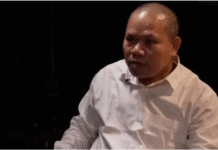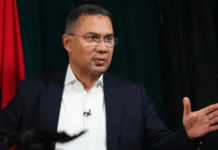
Amnesty International has investigated at least 20 disappearances at the hands of state security forces in Bangladesh since 2012, but the actual number is likely to be much higher.
Bangladeshi authorities must immediately tackle a disturbing rise in enforced disappearances over the past two years, stop the use of torture, and end their increasing crackdown on freedom of expression, Amnesty International said today in a newbriefing.
The briefing sets out some of the key human rights issues facing Bangladesh following the January 2014 elections, and makes recommendations to the government on issues which demand urgent attention.
“Bangladesh has made progress on reducing poverty and other development indicators, but this has not been matched when it comes to respecting human rights, such as torture or removing restrictions on freedom of expression,” said Abbas Faiz, Amnesty International’s Bangladesh Researcher.
“We have also documented a disturbing trend that suggests the security forces are responsible for a continuing pattern of disappearances, even though they deny it. The government has to take a long, hard look at the conduct of its own security forces, and end the almost complete lack of accountability around these cases.”
Enforced disappearances
Amnesty International has investigated at least 20 disappearances at the hands of state security forces in Bangladesh since 2012, but the actual number is likely to be much higher. Of the 20 men, nine have been found dead, six have returned home after captivity lasting up to two months and five are still unaccounted for.
Many abductions appear to have been politically motivated, with prominent members of opposition parties targeted. In several cases, eyewitnesses point to involvement by the police or its special force, Rapid Action Battalion (RAB), but there has been almost no accountability for the security forces’ alleged role.
One high-profile case involved seven people who were abducted and killed by men later identified as RAB officers in Narayanganj in April 2014. Following public outcry, police arrested three RAB officers in connection with the murders, but they have yet to be charged.
“The Narayanganj case is a litmus test for Bangladesh’s legal system. While it is positive that the three RAB suspects have been arrested, police must now follow through with a thorough investigation and bring those responsible to justice,” said Abbas Faiz.
Torture and other ill-treatment
The briefing further documents torture that is still rife across Bangladeshi places of detention. Of more than 100 former detainees Amnesty International has spoken to in recent years, all have reported being subjected to some form of torture or other ill-treatment, an indication of how widespread the problem could be. It also indicates the failure of the government to take decisive action against these human rights violations.
Torture methods frequently include beatings, suspension from the ceiling or electric shocks to the genitals. In at least two cases documented in the briefing, the detainees also claimed to have been shot in the legs by police, leading to amputation in one case.
“The government of Bangladesh must respond to long standing calls by both national and international human rights organizations and stop torture,” said Abbas Faiz.
Freedom of expression
Over the past two years, Bangladesh’s authorities have stepped up a crackdown on freedom of expression, in particular through draconian laws governing internet usage.
At least four bloggers and two human rights defenders have been charged under the Information and Communications Technology Act, a vaguely formulated law that gives authorities broad scope to charge those spreading “defaming information”.
Four bloggers were arrested in April 2014, accused of making derogatory comments about Islam. Although they have since been released on bail, the charges against them have not been dropped.
Editors and journalists Amnesty International spoke to when researching the briefing also reported that more subtle forms of repression have increased, ranging from threatening phone calls, to pressure from security forces on editors to deny media space to government critics.
Amnesty International sought comments from the government on the human rights concerns raised in the briefing. Without providing any details, the government said that cases of enforced disappearances have been investigated, and torture charges have been framed “against certain number of law enforcement personnel under [Torture and Custodial Death (Prohibition) Act 2013] (on the basis of evidence)”. The government also said “any law [in regard to a new media policy] would be formulated in consultation with all concerned, including representatives of the electronic media”. No details were given about the format of such consultation.
“Amnesty International will be monitoring the developments in cases highlighted in this briefing as a test of the government’s determination to address the human rights concerns we have highlighted,” said Abbas Faiz. “We urge the authorities to engage seriously with all the recommendations we are making.”
Source: Amnesty International









